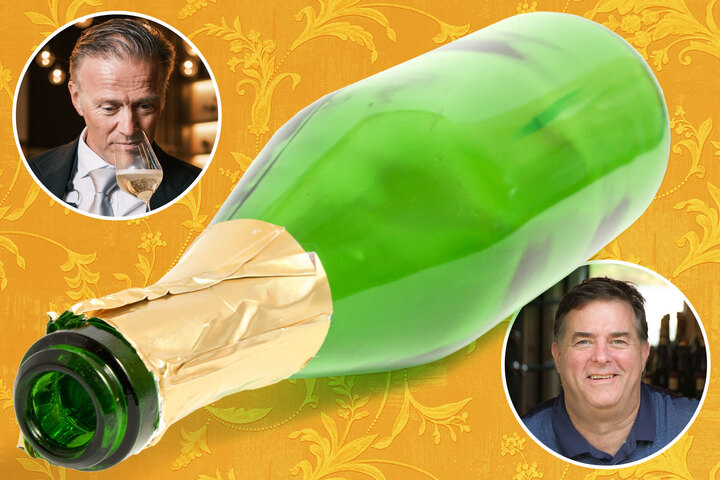Veuve Clicquot, a name synonymous with luxury, has been losing its appeal with some high-end dining establishments in New York City. Known for its iconic yellow label, Veuve is noticeably absent from Champagne-focused menus at select restaurants, which have chosen not to feature it. One local restaurateur, who prides himself on offering over 60 Champagnes, decided to remove Veuve from his menu for the first time, citing its mass-produced and overplayed nature.
The decline in Veuve’s popularity is attributed to its acquisition by luxury conglomerate LVMH in 1987. Despite having special vintages that retail for thousands of dollars, its signature $70 yellow label Champagne brut is facing criticism from oenophiles. Some wine enthusiasts have described it as sour, unbalanced, and “basic,” with a noticeable decline in quality. The launch of the sweeter “Rich” blend in 2015 was seen as a marketing ploy rather than an effort to maintain quality.
While Veuve has gained popularity over the years, selling an estimated 16 million bottles annually, concerns have been raised about its ability to monitor and maintain quality at such a large-scale production. As a result, the brand has faced criticism for prioritizing mass production over excellence in taste. Some experts in the industry, such as Peter Viveriti, have expressed doubts about the brand’s ability to deliver consistent quality when sourcing grapes from hundreds of different vineyards.
Despite its detractors, Veuve Clicquot still enjoys a loyal following and significant brand recognition. The award-winning sommelier Aldo Sohm acknowledges the brand’s marketing success but does not necessarily praise its flavor profile. While Veuve may not be his first choice for personal consumption, Sohm acknowledges its role as a gateway to more sophisticated Champagne options. For some consumers, Veuve serves a specific purpose, such as signaling a certain level of spending or offering a familiar starting point for exploring other Champagne varieties.
In conclusion, Veuve Clicquot’s iconic status in the world of Champagne has been challenged by some within the industry who question its quality, taste, and mass-market appeal. While the brand maintains a strong presence in the market and continues to attract consumers, there is a growing sentiment among wine connoisseurs and industry insiders that Veuve’s focus on marketing and production volume may have come at the expense of product quality. As preferences shift towards more artisanal and nuanced Champagnes, Veuve may need to reevaluate its approach to maintain its standing in the ever-evolving world of luxury beverages.















